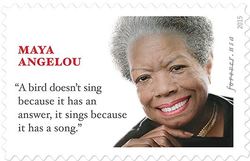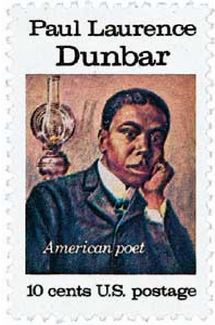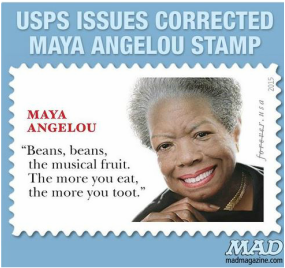Evidently unable – as a scientist and/or an honest man – to prevaricate, Hunt could not summon up the appropriate remorse in his various apologies. He told the BBC, for example, that he was "really sorry that I said what I said", adding it was "a very stupid thing to do in the presence of all those journalists". His remarks, he went on, were "intended as a light-hearted, ironic comment" but had been "interpreted deadly seriously by my audience.” He almost made it to the required posture of abject self-criticism – "I'm really, really sorry I caused any offence, that's awful. I certainly didn't mean that” – and then ruined it by adding, “I just meant to be honest, actually."
University College of London issued a dour statement: “UCL was the first university in England to admit women students on equal terms to men, and the university believes that this outcome [Hunt’s resignation] is compatible with our commitment to gender equality." The UCL statement is in lock step not only with the grim political correctness that grips academia everywhere, but also with the unfortunate propensity, among educated 21st century British writers and speakers, to use “to” as a generic preposition, (it should be “on equal terms with men” not “to”) as if they have more important things to do than to exercise their left frontal lobes.
The Royal Society, of course, has joined the po-faced, we-are-not-amused crowd. After an ambivalent initial reaction, "Sir Tim Hunt was speaking as an individual and his reported comments in no way reflect the views of the Royal Society," the Society evidently decided that Hunt need not fall on his sword and resign from the Society, but that just a token bit of self-harming would suffice. It accepted Hunt’s resignation from the Society’s Biological Sciences Awards Committee with a statement that calls Hunt’s “recent comments so disappointing,” but also warmly praises his contributions to science and his efforts to support “the careers of many young researchers.”
While on-line and on-camera pundettes (sorry! mea culpa!) flung the now boring epithet “sexist” at Hunt, accusing him of being a typical man, who goes around stereotyping women, the reaction of Hunt’s victims – women scientists – has been, predictably, as light-hearted as Hunt says he intended his remarks to be. (I say “predictably” because, in my experience, women involved in the sciences tend to be a particularly jolly bunch of people.) For example, this tweeted pictorial response to Hunt by a lovely soil scientist:

The Post Office excused itself by noting that the stamp was approved by Angelou’s family. Anglund said it was okay by her, she was an admirer of Angelou and it was nice to see her words on a postage stamp. Angelou used Anglund’s line (presumably with “it” instead of “he”) in public speeches. President Obama quoted it when presenting an award to Angelou. In normal circumstances – that is, when you are fact-checking a project somewhat less momentous than a commemorative postage stamp on which, incidentally, is printed the word “forever” instead of an amount of tariff – the mistake would understandable.
But this was a major blunder. A Post Office spokesman (who seems to come from the same village on the Island of Liars and Truth-Tellers as does Tim Hunt) admitted, “Had we known about this issue beforehand, we would have used one of [Angelous’s] [sic per the Washington Post] many other works.”
The proper procedure, once the mistake was discovered, would have been to recall all the unsold stamps and issue another with a true Angelou quotation. That would have been an expensive proposition, of course, amounting perhaps to the cost of a drone attack on a wedding, but – unlike the drone attack – it would have been offset a wee bit by the stimulus to the economy afforded by the windfall to philatelists who owned copies of the original erroneous stamp.
But no. The stamp was not recalled. My local post office currently has a small poster advertising it as its featured commemorative. When I see it, I am outraged – far more outraged than I am about Tim Hunt’s clueless and injudicious remarks re girls in the lab. What if the Post Office had issued a Steinbeck stamp, with the quotation, “He is trampling out the vintage where the grapes of wrath are stored”? Or a Hemingway stamp with a quotation from George Peele’s poem, A Farewell to Arms, perhaps “His golden locks Time hath to silver turn'd; O Time too swift, O swiftness never ceasing!”? Or a Henry James stamp with the verse from Ecclesiastes from which he drew the title for “The Golden Bowl”?
To issue a commemorative stamp honoring a writer and then print – in quotation marks, beside a portrait of the honoree – the words of another writer is an error. Not to rectify it is a travesty. The general sense I get from the different articles I’ve read, in which the Post Office’s laissez-faire attitude is excused, is that it’s so great that yet another black woman has made it onto a postage stamp, why make a fuss?
Ian Crouch, in The New Yorker, takes over 1,000 words to convince us, and himself as well perhaps, that it’s really okay to honor a writer with a quotation ostensibly hers, but really someone else’s, on a commemorative postage stamp. Where are those level-headed academicians who are supposed to keep an eye on our literary heritage? Did Henry Gates have nothing to say about this, or Cornel West? You’d think Toni Morrison might have put up a fuss, foreseeing a day when her picture might appear on a stamp with the words “Dearly beloved, we are gathered together here today to witness and celebrate the wedding of ____ and ____”

I know what the caged bird feels, alas!
When the sun is bright on the upland slopes;
When the wind stirs soft through the springing grass,
And the river flows like a stream of glass;
When the first bird sings and the first bud opes,
And the faint perfume from its chalice steals--
I know what the caged bird feels!
I know why the caged bird beats his wing
Till its blood is red on the cruel bars;
For he must fly back to his perch and cling
When he fain would be on the bough a-swing;
And a pain still throbs in the old, old scars
And they pulse again with a keener sting--
I know why he beats his wing!
I know why the caged bird sings, ah me,
When his wing is bruised and his bosom sore,--
When he beats his bars and he would be free;
It is not a carol of joy or glee,
But a prayer that he sends from his heart’s deep core,
But a plea, that upward to Heaven he flings--
I know why the caged bird sings!
Still – there’s hope. (Not for the caged bird, but for Western civilization.) Just as there always will be jolly women scientists to help us keep our balance in an over-excited world, there always will be Mad Magazine to pin “kick me” on the backsides of the portentous.

